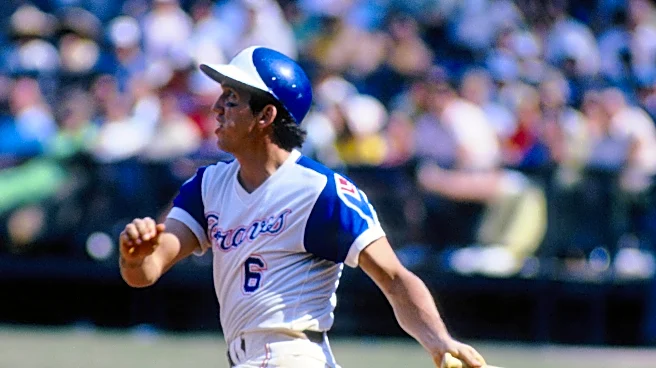Earlier today, it was reported that former big league manager and player Davey Johnson passed away yesterday. He was 82.
Johnson spent 13 years as a player in the majors and then managed for 17 seasons
in MLB. As a manager, he won 1,372 games with a .562 winning percentage. His last managerial gig was with the Washington Nationals in 2013. During his career, he also managed the Los Angeles Dodgers, Baltimore Orioles, Cincinnati Reds and New York Mets. His teams finished or second in their division a whopping 14 out of 17 seasons.
It is his tenure with the Mets, which began in 1984, is for which he is best known – winning the 1986 World Series with one of the most talented teams of the decade. He spent seven seasons at the helm of the Mets and is the organization’s all-time leader in wins.
Johnson was the manager of the Mets during the historic July 4, 1985 extra-inning game known as the “Rick Camp Game” against the Atlanta Braves, and was ejected in the 17th inning, which can be seen below.

Johnson, who won two Manager of the Year Awards and is 33rd all-time in managerial wins, was one of the first managers to embrace analytics while with the Mets. A math major at Texas A&M prior to signing with the Baltimore Orioles as player, Johnson was known for leveraging data-based decision making while with Baltimore.
As a player, Johnson was a four-time All-Star and three-time Gold Glove winner at second base. He spent the first eight seasons of his career with the Orioles, finishing third for 1966 Rookie of the Year voting, and being selected to three All-Star games.
The Orioles appeared in four World Series – winning two – during Johnson’s tenure. He was also part of one of the better defensive infields of the modern era, winning Gold Gloves along side shortstop – and one of he best defensive shortstops in the history of the game – Mark Belanger, and legendary Hall of Fame third baseman Brooks Robinson.
Prior to the 1973 season, after losing his second base job to Bobby Grich, the Orioles traded Johnson in a multiplayer deal that saw catcher, and former Rookie of the Year winner, Earl Williams head to Baltimore from Atlanta.

The 1973 season proved to be a historic one for Johnson and the Braves. That season, Johnson slugged 43 home runs – 42 while playing second base – which tied him for the record for the most home runs hit by a player while appearing at second base in major league history with Hall of Famer Rogers Hornsby.
Johnson was one of three Braves to hit 40-or-more home runs in a single season, joining Hall of Fame icon Henry Aaron and third baseman Darrell Evans. All three Braves were All-Stars, each driving in 90-or-more runs, while Evans led the National League in walks. They became the first trio of teammates to hit 40-or-more home runs in a single season for one team.
Johnson set career highs in home runs, RBI (99), runs, hits and walks in 1973 and finished with a career-best ranking in the MVP balloting, finishing 13th. Despite the offensive firepower while playing under Braves manager, and Hall of Fame third baseman Eddie Mathews, the Braves finished below .500 for the season.
Johnson returned as the Braves starting second baseman in 1974, but his offensive number returned to his solid, but only slightly above average norm. Four games into the 1975 season, Atlanta released Johnson who would go on to sign to play professionally in Japan.
After two years playing for Yomiuri Giants, he returned to MLB in 1977 for two final seasons.
In 1978, he became the first big league to hit two pinch-hit home runs in the same season while playing with the Philadelphia Phillies. That record was tied by Mike Ivie of the San Francisco Giants weeks later and has been tied by several players since, including Brooks Conrad with the Braves in 2010.
For his career, Johnson hit 136 home runs and collected 1,252 hits for a .744 OPS across 1,435 career games.
Johnson was not elected to the Hall of Fame prior to his passing, missing out of election four times, twice each via the Veteran’s Committee and the Today’s Game Era ballot.
He also managed Team USA in 2009 World Baseball Classic and the 2008 Summer Olympics.









